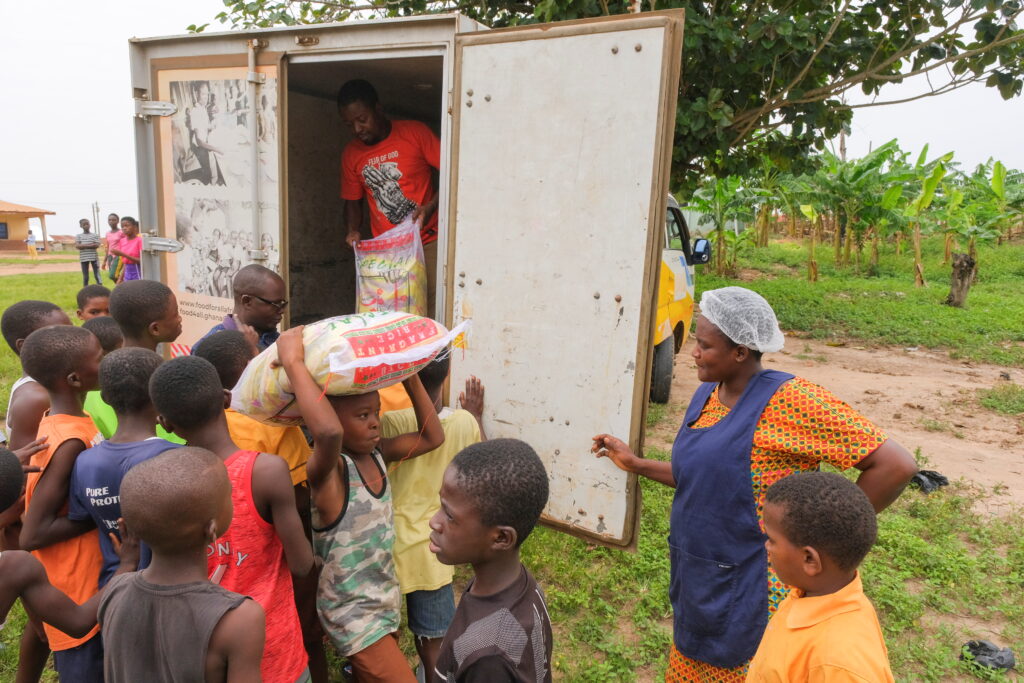Terrorist groups such as Boko Haram and al-Shabaab have long had a simple philosophy for controlling the people they can’t win over: Take away their food.
For years, their attacks against markets, supply sources and farmers have reduced food availability. They have contaminated and destroyed farmland in ways that make it unusable for years. In a 2025 study, researchers Simone Papale and Emanuele Castelli quoted a farmer in Somalia as saying, “wherever al-Shabaab goes, drought follows.”
Warfare and terrorist violence always have been linked to food security problems, starvation and famine. Terrorism can cause food disruptions, undermining production systems and supply routes. Terrorists take away their victims’ food and often use it as ransom, giving it back to force them into submission.
“This has major implications,” Papale and Castelli wrote for The Conversation in May. “The use of food as a weapon worsens humanitarian conditions. It causes the displacement of people in vulnerable settings. As a result, it sets in motion dangerous mechanisms of instability that can even undermine militants themselves, reducing their resources and operational capabilities.”
Boko Haram and al-Shabaab have challenged African security forces for years, attempting to topple governments and establish dictatorships. They have focused on regions where food security is minimal, such as Nigeria’s Borno State and southern Somalia. Often the terrorists will invade communities that already struggle with food supplies and make the situation worse by burning crops, banning farming and fishing, and poisoning water sources. In Somalia, al-Shabaab has disrupted trade routes and destroyed food imports, exacerbating famine.
Terrorists have been particularly destructive in the Sahel, Nigeria and Somalia, but other parts of the continent, such as Mozambique, also have suffered. The Islamic State group affiliate known as ISIS-Mozambique has overwhelmed Cabo Delgado province, robbing the region of traditional fishing and farming. As of early 2025, nearly 6,000 people had been killed, and up to half of the province’s 2.3 million people had lost their homes. Finding food and shelter had become a daily struggle.
Researchers say forces can reduce food access to achieve strategic and tactical goals, a practice as old as warfare itself. Doing so can break local communities’ resistance, forcing them to stop supporting the government. Controlling access can bolster terrorists’ political and military credibility. As conditions worsen, the terrorists will return stolen food as a gift, using it as ransom and political leverage. It can become a sort of starvation Ponzi scheme, as terrorists steal food from one region and give it out in another area. Boko Haram, researchers say, has struggled to distribute its confiscated food in different regions while maintaining its influence overall.
Papale and Castelli describe the practice as “a double-edged weapon” as it enables terrorists to acquire power and credibility while, at the same time, “generating conditions undermining their appeal and operational capabilities in the long run.” Over time, terrorists’ attacks on food resources and infrastructure destroy supply routes. Their destruction of crops and pastures becomes disastrous to everyone.
As conditions deteriorate in terrorist-dominated parts of Africa, the insurgents themselves begin to suffer. As food supplies wither, they lose the ability to manipulate their victims. Recruiting new members becomes harder. Over time, resistance builds, and militias mobilize against them.
As a result, humanitarian conditions worsen, local economies weaken and terrorists lose their will, reports the environmental magazine Down to Earth. The terrorists “have become victims of the emergencies they have helped generate,” the magazine noted. “They have increasingly struggled to supply nourishment for their troops and supporters. Consequently, they have witnessed a growing number of defections motivated by unsustainable conditions.”
In their study, Papale and Castelli say the weaponization of food supplies is a losing strategy for terrorists.
“While food-centered tactics may help terrorist groups achieve operational objectives, they can backfire in the long run, generating disruptions undermining militants’ appeal and capabilities,” the researchers reported. “The deterioration of food security caused by the actions of Boko Haram and Al-Shabaab has had considerable repercussions for both the organizations during the last decade, decreasing the resources available to sustain contention while escalating tensions with the population. Insurgents have registered a progressive loss of support, experiencing increasing defections and growing opposition from local communities.”

